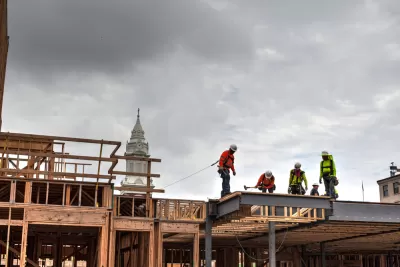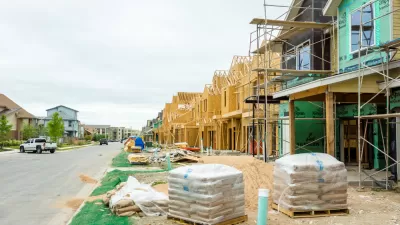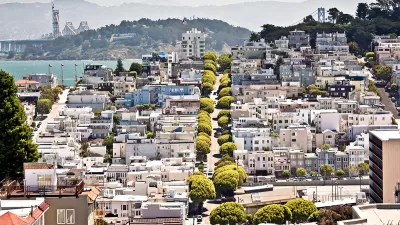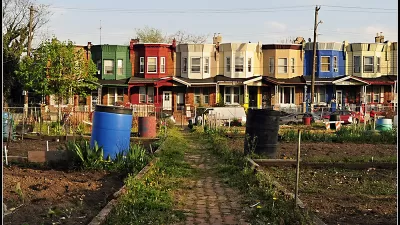The city of Philadelphia launched a height and density bonus in 2018 to create incentives for the development of affordable housing, but so far the results have proven underwhelming.

"Philadelphia City Council on Thursday overwhelmingly passed a bill that backers hope will encourage developers to build more affordable housing units in desirable areas," reports Aaron Moselle.
The bill tweaks the city's voluntary Mixed-Income Housing Bonus program, launched in 2018, which has so far underperformed expectations. The program "allows developers to construct larger buildings than allowed under zoning regulations if they agree to build affordable housing units or contribute to the city’s Housing Trust Fund," according to Moselle. "The fund provides money for new affordable homes, as well as the preservation and repair of existing homes."
"Since launching, the program has resulted in developers building fewer than two dozen affordable housing units, with the majority of developers who got the so-called bonuses to build extra floors or floor space opting to contribute to the trust fund instead of building on site," adds Moselle.
The bill's modification to the program will allow developers allow developers of smaller projects (i.e., less than ten units) to be granted mixed-use bonuses of height and density if they build affordable housing on site.
"The measure also includes a provision designed to encourage the preservation of active commercial corridors. That provision bars developers from getting a mixed-use bonus if they are also getting a zoning variance for residential use in a ground-floor commercial space."
More details on the new ordinance and the existing program are included in the source article. A soundbite by Mo Rushdy, the treasurer of the Building Industry Association, expressing skepticism that the bill will achieve the expected benefit for affordable housing in the city, is also included.
FULL STORY: Philly passes bill that aims to encourage affordable housing in desirable neighborhoods

Planetizen Federal Action Tracker
A weekly monitor of how Trump’s orders and actions are impacting planners and planning in America.

Map: Where Senate Republicans Want to Sell Your Public Lands
For public land advocates, the Senate Republicans’ proposal to sell millions of acres of public land in the West is “the biggest fight of their careers.”

Restaurant Patios Were a Pandemic Win — Why Were They so Hard to Keep?
Social distancing requirements and changes in travel patterns prompted cities to pilot new uses for street and sidewalk space. Then it got complicated.

Platform Pilsner: Vancouver Transit Agency Releases... a Beer?
TransLink will receive a portion of every sale of the four-pack.

Toronto Weighs Cheaper Transit, Parking Hikes for Major Events
Special event rates would take effect during large festivals, sports games and concerts to ‘discourage driving, manage congestion and free up space for transit.”

Berlin to Consider Car-Free Zone Larger Than Manhattan
The area bound by the 22-mile Ringbahn would still allow 12 uses of a private automobile per year per person, and several other exemptions.
Urban Design for Planners 1: Software Tools
This six-course series explores essential urban design concepts using open source software and equips planners with the tools they need to participate fully in the urban design process.
Planning for Universal Design
Learn the tools for implementing Universal Design in planning regulations.
Heyer Gruel & Associates PA
JM Goldson LLC
Custer County Colorado
City of Camden Redevelopment Agency
City of Astoria
Transportation Research & Education Center (TREC) at Portland State University
Camden Redevelopment Agency
City of Claremont
Municipality of Princeton (NJ)





























